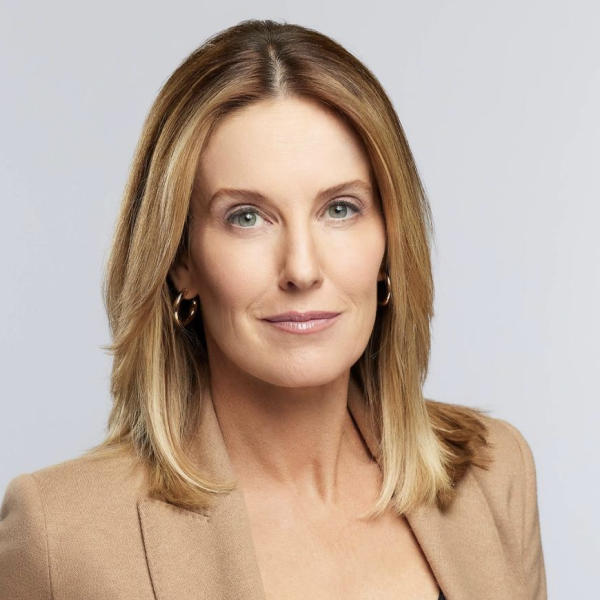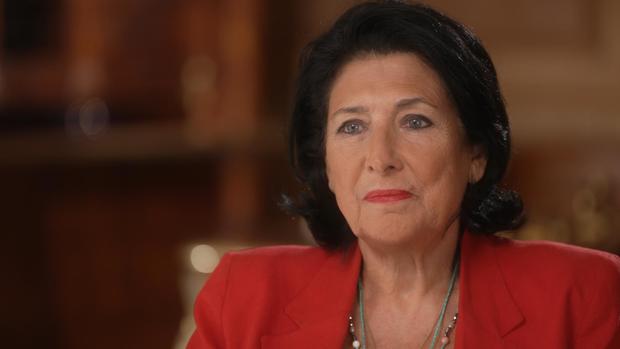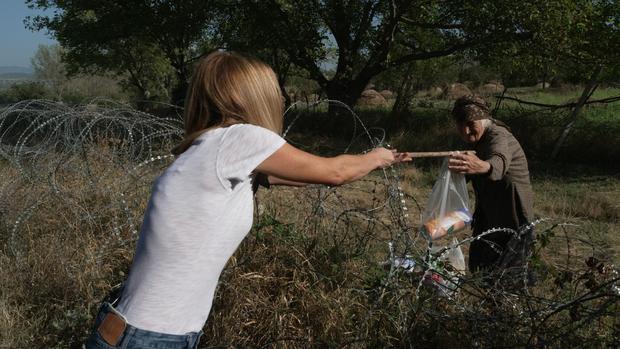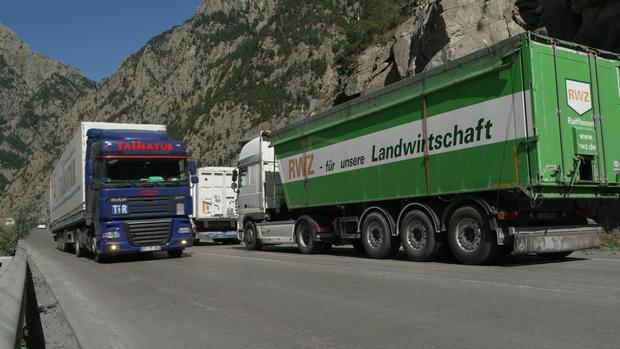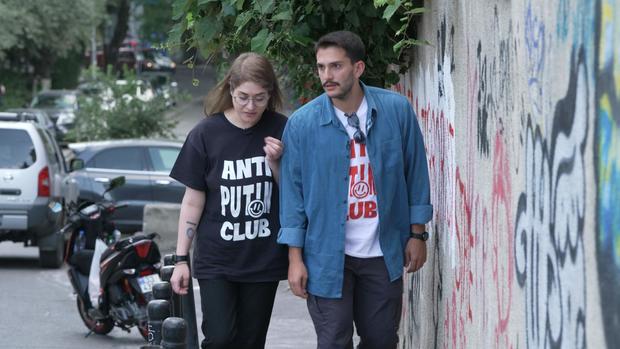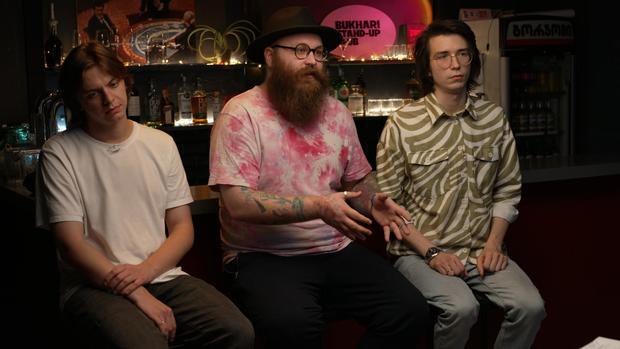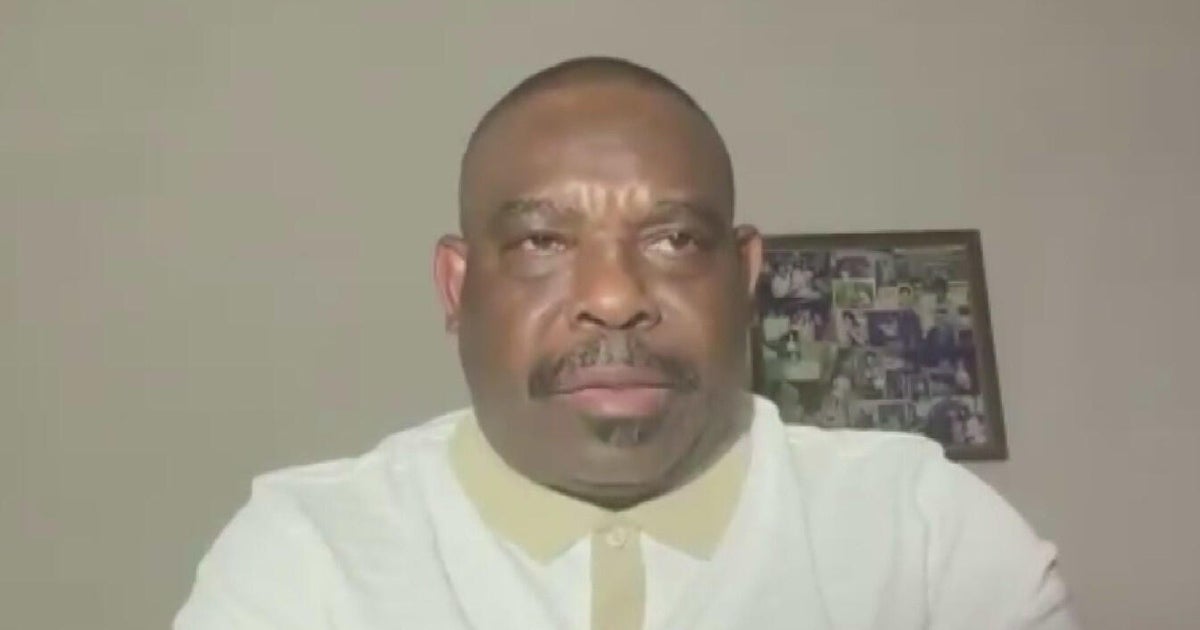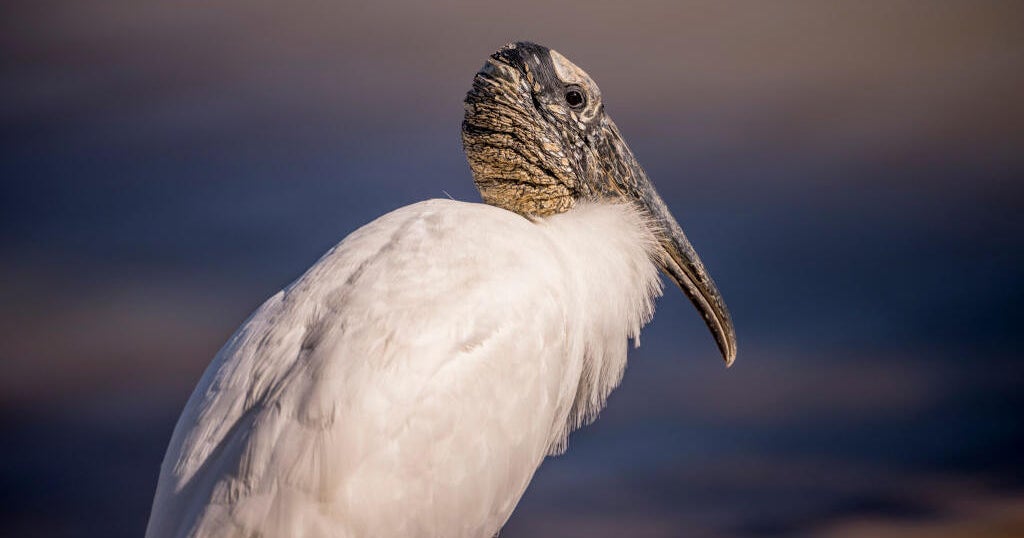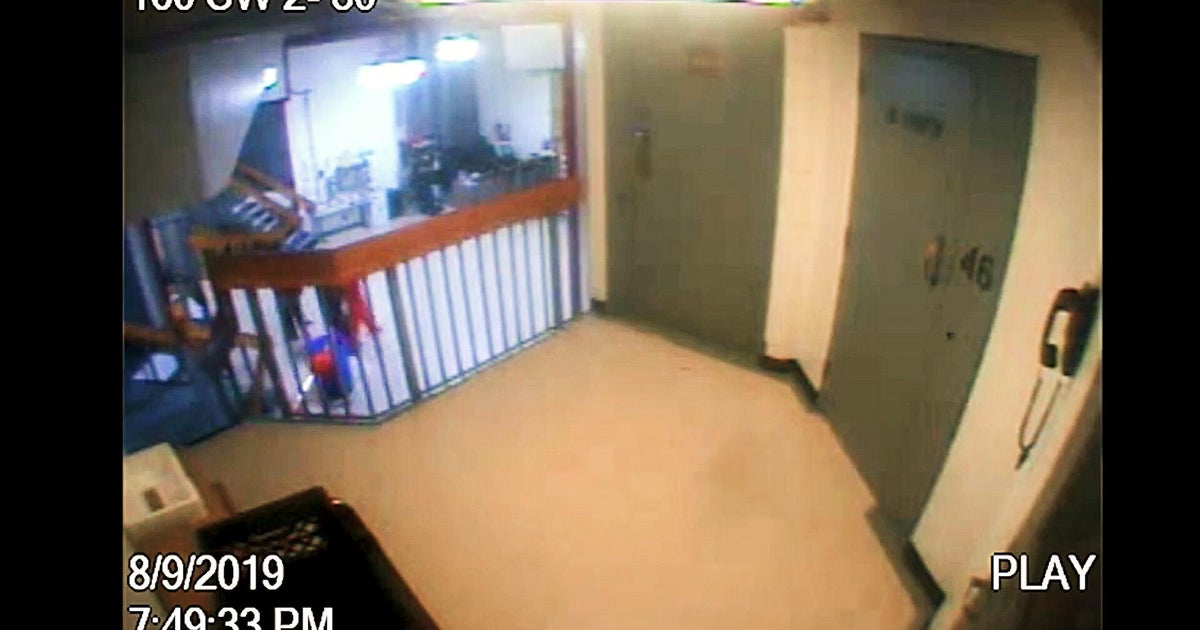Denial of Georgia's EU membership bid would be "a big victory for Russia," President Zourabichvili says
This is an updated version of a story first published on Oct. 29, 2023. The original video can be viewed here.
The day Russia invaded one of its neighbors, waged a bloody war and seized a fifth of that neighbor's territory fear and shock rippled throughout the region.
We are not talking about Russia's invasion of Ukraine, rather the small country of Georgia. That invasion was more than 15 years ago. Vladimir Putin's playbook hasn't changed much.
Today, Georgia - which shares a 556-mile border with Russia - is still trying to remove the grip of the Kremlin.
Days after Russia invaded Ukraine, Georgia submitted an application to become part of the European Union with hopes of gaining a Western insurance policy to protect it.
Last October, we met with the president of Georgia, Salome Zourabichvili. The daughter of Georgian refugees, raised in Paris, she says that Vladmir Putin has launched a quiet invasion of Georgia in an attempt to extend Russia's reach.
Sharyn Alfonsi: The war in Ukraine is now moving into its third year. How is the war there impacting life here?
President Salome Zourabichvili: It is, of course, a reminder of everything that this country has gone through. And of the fact that it's always an immediate danger and threat. It's already part of the reality that Russia is testing the ground.
Sharyn Alfonsi: You think the Russians are testing the ground right now in Georgia?
President Salome Zourabichvili: Right now.
Sharyn Alfonsi: How so?
President Salome Zourabichvili: Here their way, their easy way, is the hybrid war.
A hybrid war that has included online and televised disinformation campaigns and anti-Western propaganda pumped into Georgia - a favorite tactic of the Kremlin.
Georgians have seen it before. In 2008, three weeks before Russia launched its first airstrike in Georgia, Moscow hit the country with a series of cyberattacks.
The five-day, bloody battle that followed ended with Russia seizing 10% of Georgia's land. President Zourabichvili says the mostly muted international reaction to that war laid the groundwork for Russia's invasion of Ukraine and Vladimir Putin's plan to bring as many of the former Soviet Republics back into the Russian fold.
Today, a fifth of Georgia is occupied by the Russian military and an estimated 8,000 Russian troops are inside the Georgian border.
We traveled with Georgian security forces 37 miles outside the capital of Tbilisi into the tiny village of Khurvaleti. Today, it is a rural no-man's land.
Across a rickety bridge, we found an abandoned stretch of farmland… choked off by barbed wire, warning signs to stay out and a defiant 87-year-old - Valya Vanishvili.
Valya Vanishvili (translation): The Russians have told me 'This is our land." And I said, "No, your land is in Russia. This is our land, not yours. You have no rights here."
Sharyn Alfonsi: How long have you been surrounded by the barbed wire?
Valya Vanishvili (translation): For 15 years.
In 2008 her land was seized by Russian troops. The grandmother of four still refuses to surrender her home.
Cut off from family, she relies on outsiders and a stick to deliver food and the medicine she needs. She whispered to us, that the Russians were watching us…from over that hill.
Sharyn Alfonsi: Are you afraid of the Russians?
Valya Vanishvili (translation): Yes, I'm afraid of them. What if they take me and detain me? Nobody can help me. I'm alone. When it's only couple of them, I can always answer them and fight back. But when it's a lot of them, there's nothing I can do.
Georgia is bordered on the north by Russia, the east by Azerbaijan and the south by Armenia and Turkey. The bridge between the Black and Caspian Sea – an important route for natural gas and oil.
High up in the mountains of Georgia, we saw another reason the small country of nearly 4 million is crucial to the Kremlin.
A long line of trucks, many of them carrying European cargo across the border into Russia. United Nations data shows that since the war began everything from cars to chemicals have rolled into Russia through Georgia – some in violation of Western sanctions - a lifeline for Putin's regime.
There is traffic coming *in* to Georgia too. Thousands of Russian nationals entering the country in cars and on foot.
Extending for miles and arriving in waves, first at the beginning of the Ukraine war in 2022 and again later that year when fighting-age men fled Russia's mandated military service.
But some Georgians worry Putin loyalists could be entering the country too, laying the groundwork for Russia's next move.
When Vladimir Putin invaded Ukraine in 2022, he said it was to, among other things, protect the Russians living there. President Zourabichvili fears Putin could launch a similar campaign in Georgia.
Since the war, Georgia has become home to 100,000 Russians.
President Salome Zourabichvili: It's very unnerving when in your own country you have people that are talking the language of the enemy. And that believe that they're at home.
Sharyn Alfonsi: The Russians believe that they are at home.
President Salome Zourabichvili: They're behaving and believing that they are very much at home. So there is a fine line. And that line has to be kept so that we do not have incidents in the future that would allow Russia to use their favorite doctrine of protecting Russian speaking citizens.
Sharyn Alfonsi: So why doesn't Georgia just say, "no more Russians through our border"--
President Salome Zourabichvili: That is a question for the authorities.
Sharyn Alfonsi: Aren't you the authority?
President Salome Zourabichvili: No. I don't have the executive powers, un-- unfortunately.
The executive power to control Georgia's borders was squarely in the hands of its prime minister - Irakli Garibashvili.
Publicly, he said that he supported the country's bid to move away from neighboring Russia and join the European Union. But his actions and inactions told a different story.
Since the Ukraine invasion, Prime Minister Garibashvili agreed to resume flights between Tbilisi and Moscow for the first time in almost five years. He's also failed to adopt strong sanctions against Russia.
Critics of the prime minister accuse him of being in the pocket of a Georgian oligarch, Bidzina Ivanshivilli, a billionaire who helped get him elected.
The 67-year-old oligarch made his fortune in Russia and served a brief stint as Georgia's prime minister. His $50 million home looms over Tbilisi, a reminder of his wealth and power.
In 2022, European lawmakers called for sanctions against the oligarch for his quote, "links to the Kremlin" – a connection that could undermine Georgia's EU bid.
Ana Tavadze: We're going in with a government that's completely corrupt, a government that's pro-Russian, clearly anti-Western, clearly does not really care about what the majority of the population wants and needs.
Ana Tavadze and Dachi Imedadze are members of the Shame Movement – a group with thousands of young followers working towards Georgia's entry into the European Union.
Ana Tavadze: If Russia wins, it means loss of freedom, loss of everything that we fought for in the past 30 years basically. It's a fight for values, it's a fight for where you want to stand in this big fight for democracy.
Dachi Imedadze: As soon as the West in any form, be it the U.S. partnership, be it the European Union, is not represented in this country, Russia will fill the void right away.
They say the influx of Russians is already changing the face of Georgia.
Ana Tavadze: What are they doing, if we look at it? They're buying apartments. They're buying private property. They are opening up businesses. Their actions changed-- Georgian economy.
Dachi Imedadze: The Russians are buying apartments here in every 33 minutes. They're purchasing a piece of land in every 27 minutes. And they're registering a business in every 26 minutes. So, I think we are on the brink of very dangerous situation here in Georgia.
According to public records, Russians have registered more than 20,000 businesses in Georgia over the last two years. And launched five new Russian-only schools, none of which are licensed by Georgia's department of education.
Russians have driven rent up nearly 130%, prices for everything from food to cars have gone up 7%. over 100,000 Georgians have left the country because many of them can't afford to live here anymore.
Sharyn Alfonsi: I've heard this described as a quiet invasion.
Dachi Imedadze: Quiet invasion, yeah. There is a risk of the economic diversions. There is a risk of military intervention. And there's a risk of-- Georgia's statehood being destroyed.
Emmanuil Lisnif, George Smorgulenko and Pavel Bakhadov don't look like much of a threat.
All Russians in their twenties, they fled their country for fear of being drafted or imprisoned for speaking out against Putin.
They now live in Georgia and work at this Russian-owned comedy club in Tbilisi.
Emmanuil Lisnif: I try and said 'I'm against the war in Russia. I was beaten. and after that going to prison three times.'
Sharyn Alfonsi: So three times you went to jail?
Emmanuil Lisnif: Yes, yes three times.
Pavel Bakhadov: I believe and I know that Russians actually against the war.
Sharyn Alfonsi: You think that most Russians are against the war?
Emmanuil Lisnif: Yeah, just scared, really scared.
Sharyn Alfonsi: Have any of you had any aggression towards you because you're Russian?
Pavel Bakhadov: Actually I have a big writing on the wall. It's the biggest thing I see from my window, just big 'Russians go home.'
There is no subtlety in spray paint… anti-Russian graffiti blankets the city along with support for Ukraine.
On crumbling walls, the Georgian flag is joined with those of the European Union, the U.S. and NATO.
Over 80% of the Georgian public backs entry into the EU, as does Georgian President Zourabichvili. But her position, has become increasingly ceremonial as the country moves toward a parliamentary government.
After she went to Europe to try and pave the way for Georgia's EU bid, Prime Minister Irakli Garibashvili accused her of violating the constitution, banned her from traveling to Europe, and tried but failed to impeach her.
President Zourabichvili has defiantly continued to fly to Europe to meet with leaders on her own dime.
Sharyn Alfonsi: It doesn't seem like the prime minister is interested in joining the EU.
President Salome Zourabichvili: Well, that's a question that the whole population is asking, whether they really want it or-- whether it's lip service.
Sharyn Alfonsi: This is a critical time. Do you feel like the West, particularly the U.S., has been responsive enough and supportive enough of Georgia in this moment?
President Salome Zourabichvili: I don't think so. And I will take one concrete example. I've been a president now for five years. And I've not managed-- to have any form of meeting at my level, which would be the president or the vice president even through a phone call.-- I understand that there are more urgent issues. But I think that some more public recognition is needed.
Sharyn Alfonsi: Recognition of?
President Salome Zourabichvili: Of the fact that United States is supporting our candidate status within the European Union. I know that is the language that the U.S. has with our European partners, but that being repeated by the highest level would be meaningful for the Georgian population.
The EU has laid out a list of requirements for Georgia to become a full member. The conditions include tackling corruption and lessening the economic and political influence of domestic oligarchs. Membership is not guaranteed.
Sharyn Alfonsi: What happens to Georgia if the EU denies the bid?
President Salome Zourabichvili: It will be a big victory for Russia.
A victory Valya Vanishvili refuses to give them. Eighty seven years old, she says she is holding her ground, for herself and for Georgia.
That bid may be in further jeopardy. This past February the Georgian parliament appointed a new prime minister - an anti-Western member of the Russian-leaning Georgian Dream party. In May, his government passed a 'foreign-agents' law, which threatens to silence media outlets and NGOs inside Georgia. And just this past week his party proposed legislation that would strip same-sex couples of their rights - both moves the eEU has said could seriously compromise the country's chance for membership...And pull Georgia deeper into Russia's orbit.
Produced by Ashley Velie. Associate producer, Jennifer Dozor. Broadcast associate, Erin DuCharme. Edited by Peter M. Berman.
